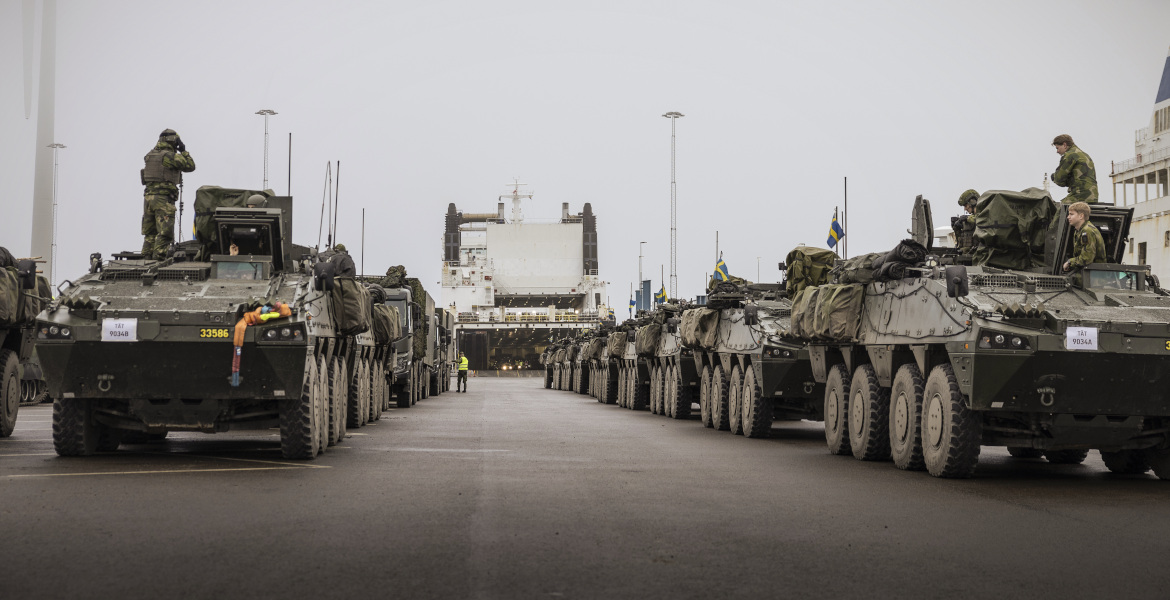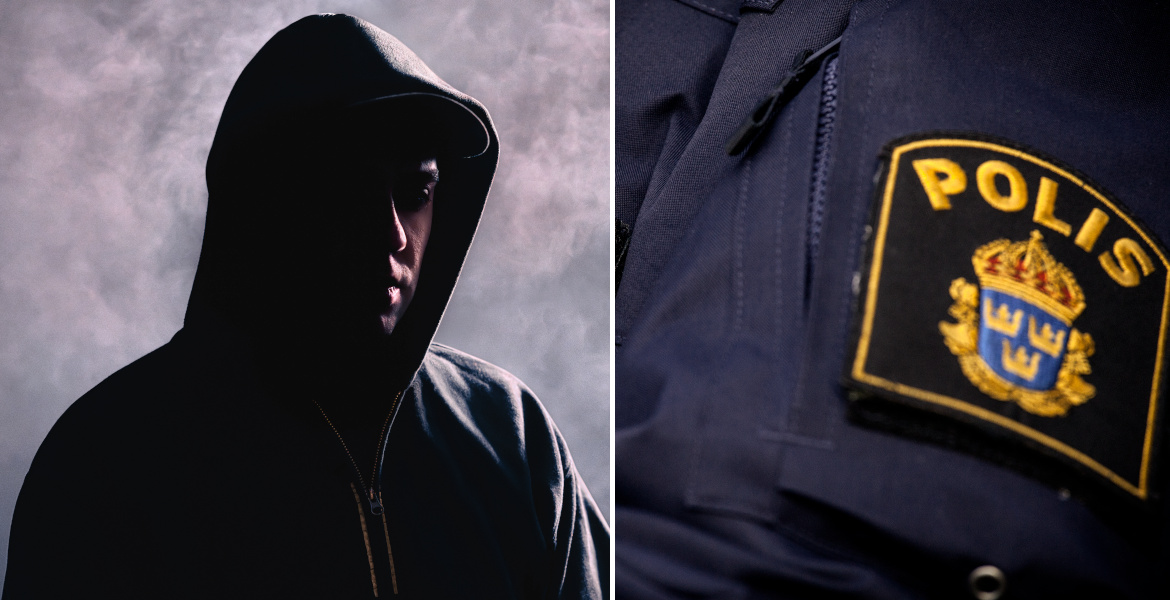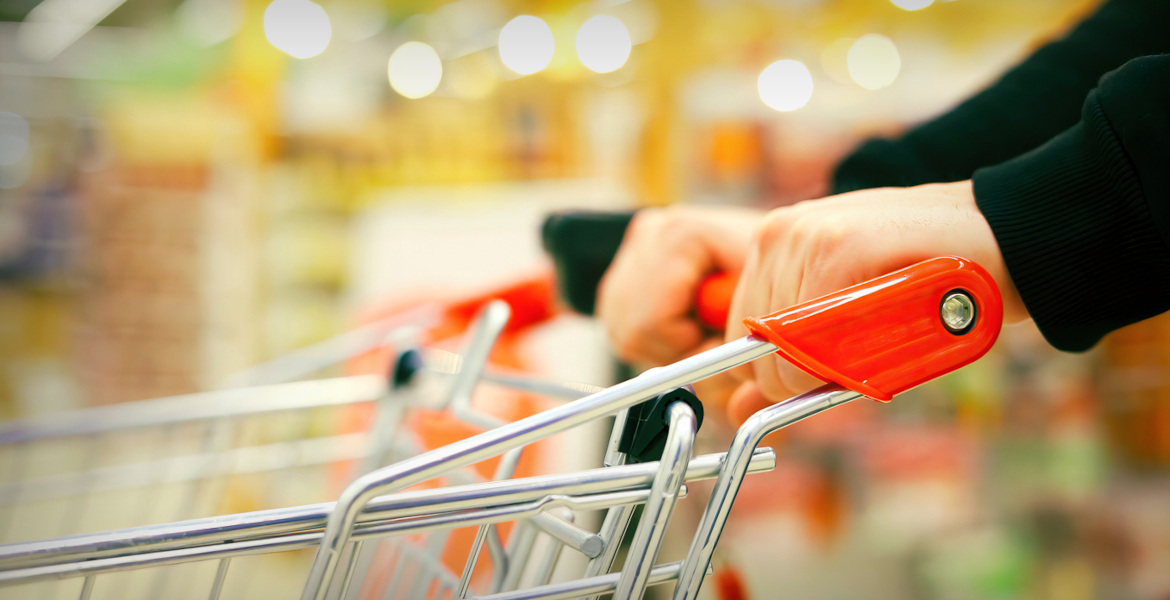– No to NATO, yes to peace. No Erdoğan laws in Sweden, Erdoğan upside down, were the slogans during Sunday’s No to NATO demonstration in Stockholm, organized by the network Allians mot Nato, which featured a sea of PKK flags among the sympathizers.
– Not a soldier, not a rifle, not a penny for NATO’s military! curious onlookers could hear echoing in Stockholm’s inner city on Sunday afternoon during the No to NATO demonstration. According to police estimates, the demonstration attracted between 500 and 1000 participants.
The background to the demonstration is Sweden’s politically infected application to the US-led military alliance NATO. The formally non-partisan demonstration was in fact dominated by representatives from left-wing political parties – including the Left Party’s Daniel Riazat who was one of the speakers.
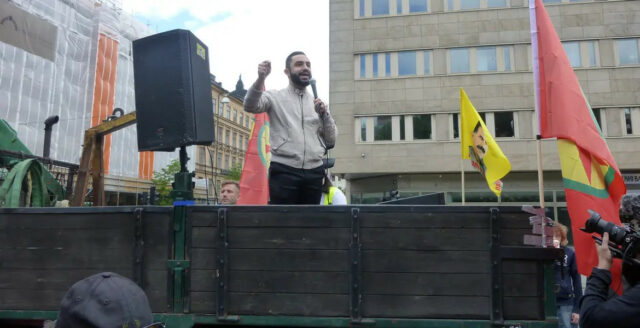
In his speech, Riazat was careful to point out that the Left Party “was the only party that voted against the Swedish application to NATO” – which is a half-truth at best, as the Green Party also voted against membership.
Our local correspondent could also report that some of the participants were representatives of radical left-wing organizations Rojavakommittérna, Syndikalisterna, Rättvisepartiet Socialisterna and Left Party youth movement Ung Vänster.
“Want to sabotage Sweden’s application”
A representative of one of the parties present with whom our our correspondent spoke did not hide the fact that they were there “to prevent Swedish membership of NATO – by all means possible”. The same representative clarified that “we choose no other side than that of peace”.
Several participants carried flags and placards with the symbol of the Kurdistan Workers’ Party (PKK) and flags depicting Abdullah Öcalan, the founder and leader of the PKK. Strong rhetoric was directed at NATO’s outgoing Secretary-General Jens Stoltenberg, US President Joe Biden and, in particular, Turkey’s re-elected President Erdoğan.
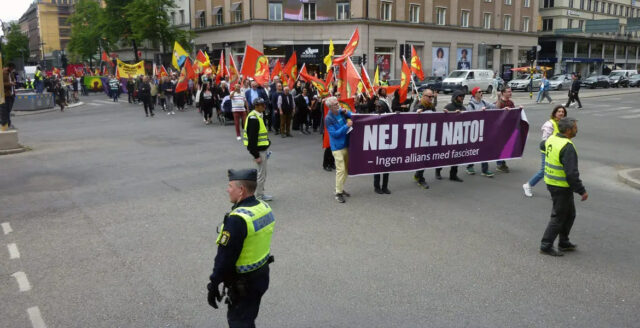
Yesterday’s demonstration could potentially delay, at least in the short term, Sweden getting a green NATO light from Turkey. According to reports, Turkey has tried to get Swedish authorities to stop the demonstration, but this did not happen. Several demonstrations in Sweden have been criticized by Turkish President Erdoğan, who has repeatedly made comments such as “Swedish authorities must prevent PKK members from demonstrating if they are serious about the NATO process”.
Carl Bildt comments
On social media, both sides of the argument have been very vocal since yesterday. Moderate MP Gustaf Göthberg, for example, called Daniel Riazat’s participation a “security risk”.
His tweet reads: “With his vitriolic participation in today’s PKK demonstrations, knowing that Sweden is in the worst security situation in decades, Daniel Riazat’s (V) immature obstruction of Swedish NATO membership is a direct security risk to Sweden.”
Med sin hätska medverkan på PKK-demonstrationerna i dag, medveten om att Sverige är i det sämsta säkerhetspolitiska läget på decennier, är Daniel Riazats (V) omogna obstruerande mot ett svenskt Nato-medlemskap en direkt säkerhetsrisk mot Sverige. https://t.co/CU5TrTXrvK
— Gustaf Göthberg (@gustafgothberg) June 4, 2023
Sweden’s former prime minister, NATO advocate Carl Bildt, who recently visited Ankara as the Swedish representative of the Swedish government, was quick to condemn.
One should know that most of these people hardly know what PKK or 🇹🇷 is. They are just fringe leftist trying to create publicity, provoke and derail the 🇸🇪 @nato process. The real terrorists are hiding – and are dealt with. https://t.co/gg7QDABlIa
— Carl Bildt (@carlbildt) June 4, 2023
However, the participants in the demonstration do not seem to be deterred by statements such as these, and say that the Swedish government and parliament are “doing whatever it takes to join a wartime alliance, thereby bowing to Turkey and dancing to Erdoğan’s tune”.
The manifestation ended at Mynttorget, just next to the Parliament building, with further speeches and chants. Several of the participants were unashamedly and vocally open about supporting the PKK in “its fight against the Turkish dictatorship and its dictator Erdoğan”.
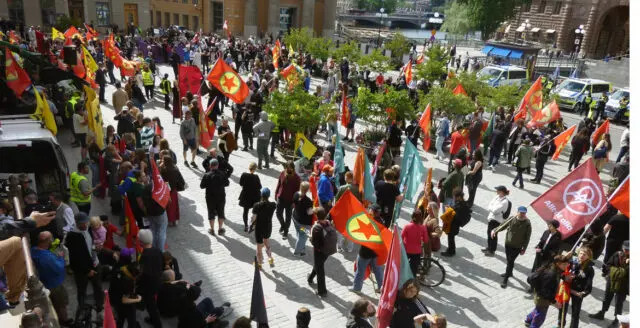
Our reporter had a chat with representatives of the police who said that the whole thing had been “calm and tidy” without, at least at the time, any reported disturbances.
Rojava is a now effectively autonomous region in north-eastern Syria, south of Turkey, with significant Kurdish influence.
Rojavakomittéerna (The Rojava Committees) describe themselves as "a network for solidarity and exchange with the revolutionary movement in Kurdistan". Their focus is described as "organizing activists in Sweden and coordinating projects aimed at supporting the struggle in Rojava".
The PKK is a Kurdish militant organization primarily based in southeastern Turkey and northern Iraq. Since 1984, it has pursued autonomy and increased political and cultural rights for Kurds within Turkey.




